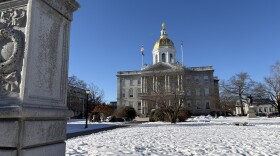A Dartmouth study has modeled for the first time that renewable energy upgrades will make the nation's power grid more resilient.
Researchers modeled a grid with an influx of three innovations: distributed generation like rooftop solar, a kind of localized power system shortcut known as a meshed grid, and energy storage.
The study is the first to find that these emissions-cutting technologies will also make the power system more able to keep operating through disruptions.
Dartmouth professor and co-author Amro Farid said those include extreme weather – like the cold snap that caused rolling blackouts in Texas this year – and cyberattacks – like the one that recently crippled a major gas pipeline.
Farid says the key reason the technologies he studied can improve grid resilience is that they tend to be installed close to the point of consumption – on the homes or in the neighborhoods where they're used.
“Really one way to interpret this paper is, buy local,” Farid said.
For the study, Farid spent years developing a modeling method that can illustrate a grid where individual pieces of infrastructure have multiple functions – like a home that both consumes energy and produces it through discharge onto the grid from a battery system.
He said the study should show policymakers and businesses that the most valuable grid investments will tackle multiple problems at once.
"If you are interested in resilience and sustainability, then you might want to go down this pathway,” he said, “rather than pathways that only look at resilience or only look at sustainability."
Grid modernization, which Farid said includes the technologies his study analyzed, is a major part of President Joe Biden's infrastructure and climate change plans.
Farid is contributing to a National Science Foundation project that's modeling the grid of the future. He said he’ll work on studying fossil fuel infrastructure next.








